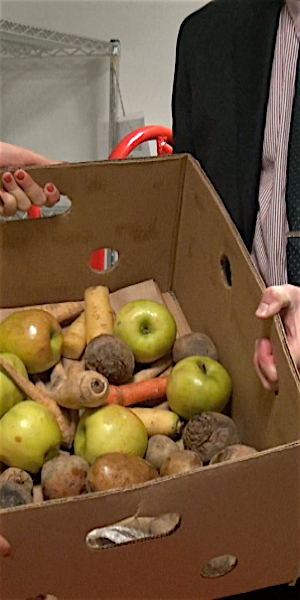We can help you take the next step!
The Center for EcoTechnology (CET) is sharing information and building relationships with Maryland stakeholders, leveraging more than two decades of work to accelerate the wasted food diversion marketplace throughout the Northeast US and beyond. The Maryland Department of the Environment is pursuing several legislative initiatives designed to increase the state’s capacity to address wasted food and CET is excited to support state leaders identify practical solutions.
To learn more about CET’s work in Maryland and to get involved, contact CET today at 888-813-8552 or e-mail wastedfood@cetonline.org.
Helpful Maryland Wasted Food Resources
- Executive Order Resource Recovery Plan for Maryland
- This plan, signed by Governor Hogan in 2017, adopts a sustainable materials management policy and stakeholder consultation process for Maryland to emphasize environmentally and economically sustainable methods of capture and reuse for various materials.
- Maryland Department of Environment Food Scraps Management
- This webpage describes strategies to address wasted food across the EPA food recovery hierarchy, provides examples of businesses with successful diversion programs, and lists service providers that can divert food material from Maryland businesses and institutions. This site also links to MDE’s Source Reduction and Organics Diversion and Composting webpages, which include legislative reports, best practices, and other resource regarding food scraps management.
- Maryland Department of Environment Food Waste Minimization and Related Activities
- This document provides a toolkit for Maryland schools on food donation, share tables, composting, and other strategies to recover wasted food.
- Composting Facilities in Maryland
- This spreadsheet, developed by MDE, lists the composting facilities in the state, including those that accept food scraps for processing.
- Baltimore Food Waste and Recovery Strategy
- In 2016, the Baltimore City Department of Planning’s Office of Sustainability (BOS) partnered with the Institute of Local Self-Reliance to create a Food Waste and Recovery strategy for the city. The strategy highlights relevant issues, difficult challenges and promising solutions within the categories of Food Waste Reduction & Recovery, Composting at Home & In The Community, Food Waste Management in K-12 Schools, and Creating Scalable Composting Infrastructure.
- List of Maryland Food Banks and Pantries
- Washington, D.C. Spotlight – Latino Economic Development Center
-
Learn more about DC food businesses that are reducing, rescuing, and recycling their wasted food. These businesses are an inspiration to other generators and their stories can be motivational tools to inspire others to implement or expand their own programs.
-
Maryland Legal/Regulatory Requirements
-
Every state has specific state-level legal and regulatory requirements regarding food waste and food donation. ReFED, a national food waste prevention nonprofit, created a searchable database of state-by-state food waste policies and regulations, in collaboration with the Harvard Food Law and Policy Clinic. View the Maryland food waste policy page for specific, up-to-date information about Maryland’s food waste laws.
- The Emerson Act
- The Federal Emerson Act (Public Law 104-210) protects donors from liability when donating to nonprofit organizations and protects donors from civil and criminal liability should the product, donated in good faith, later cause harm to the needy recipient.
Toolbox
For more information regarding food waste estimates, source separation guidance, and how to start a food donation program, open CET’s Toolbox.
TAKE THE NEXT STEP, CONTACT US!
Contact CET to learn more about food recovery and waste diversion opportunities for your business, institution, customers, or association members:
